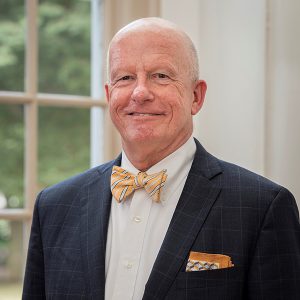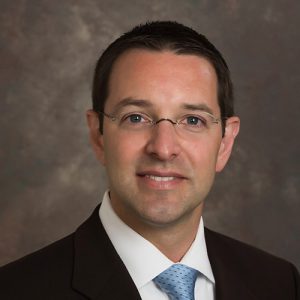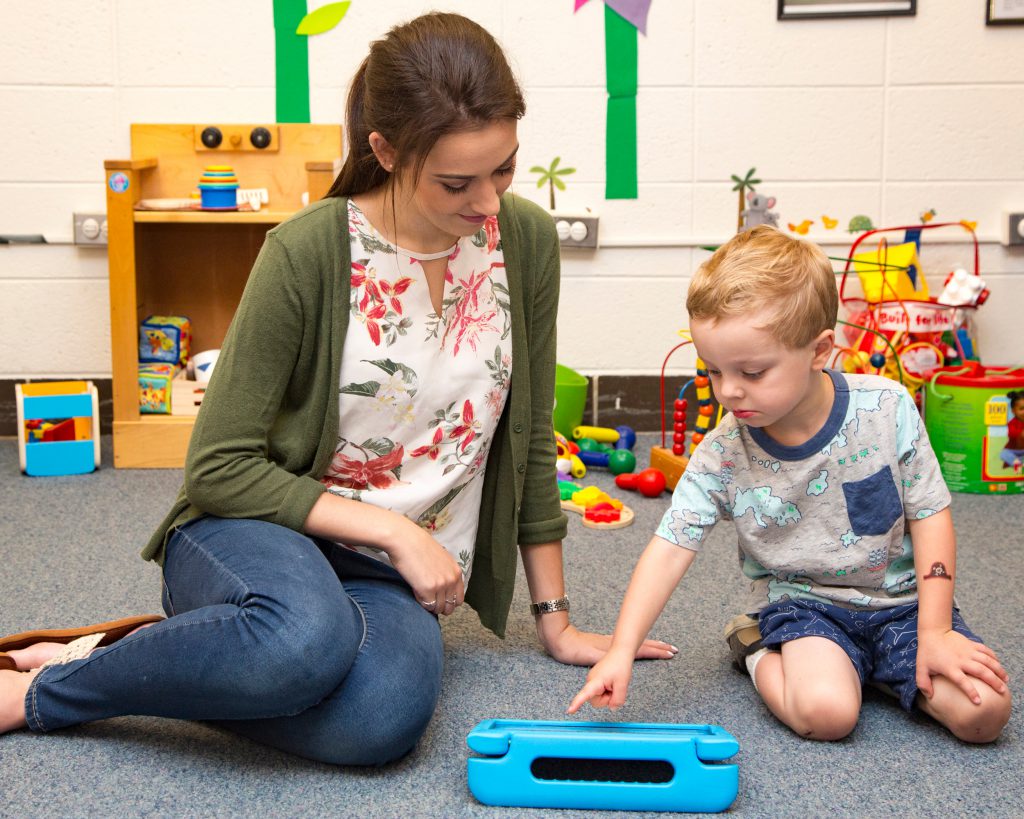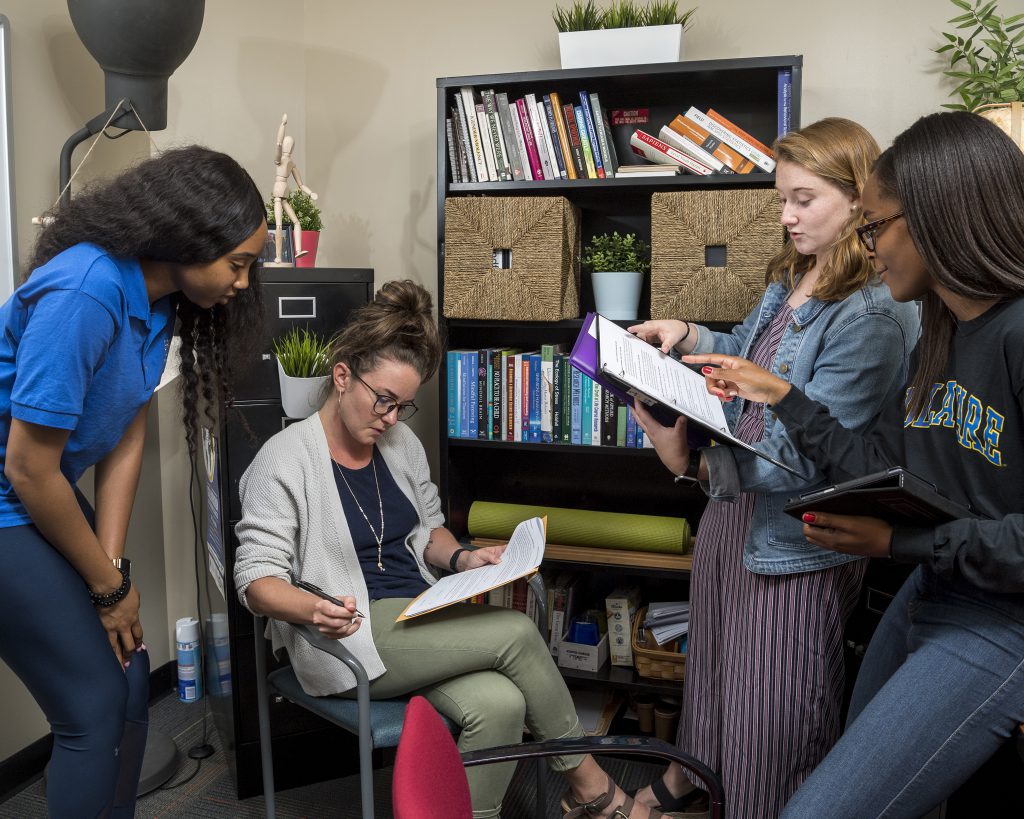Research
Education Leadership & Administration
Principals, superintendents, and other K-12 educational leaders work within complex organizations and community networks that serve a wide range of constituents: teachers, school staff, students, families, community members, and state leaders, among others. As educational leaders, these individuals must often make important, timely, and challenging decisions that influence the teaching, learning, and community-building that takes place within their schools or districts.
How can we help educational leaders access, analyze, and communicate the information they need to effectively support their teachers and students? What kinds of organizational or structural barriers may impede the success of an assistant principal or principal within a particular school or district? Perhaps most importantly, how can colleges of education translate the research it conducts into accessible and usable formats for these leaders?
Our education leadership and administration faculty engage in innovative and interdisciplinary research designed to help answer these questions and others. Supported by grants and educational partnerships, our faculty help educational leaders address the challenges they face in evaluating educational programs, supporting teachers and students in the classroom, engaging in school turnaround efforts, and accessing research that allows them to make data-driven and informed decisions in their schools and districts.
Researchers
What can school districts and educational leadership do to better support teachers and help them to thrive in the classroom? According to Lauren Bailes, teacher attrition can be predicted by the initial school setting of new teachers as well as the type of certification they hold. Bailes found that traditionally licensed teachers initially placed in traditional public schools are more likely to persist when compared with other preparation types or initial placements into charter schools.
How can we include community voices in education policy and governance? James C. Bridgeforth’s research and teaching focus on community voice in education policy and governance, as well as the politics of educational leadership. His work specifically attends to manifestations of racism and anti-blackness in schools. His scholarship has been published in academic journals such as the Journal of School Leadership, Education Policy Analysis Archives, Educational Evaluation and Policy Analysis, and Educational Administration Quarterly. He has also shared his work in national media outlets including Education Week and The Washington Post.
Joy Esboldt’s interdisciplinary research leverages critical theories of race and learning to examine how teachers, leaders and organizations learn about race, power and equity within local and sociopolitical contexts. She is particularly interested in interactional and organizational processes of teacher learning that lead to social transformation and/or social reproduction. Esboldt employs a range of qualitative methods, predominantly grounded in partnerships with educators and educational leaders with shared commitments to cultivating more democratic and liberatory learning environments.
What steps can researchers at colleges and universities take to better support local school districts? According to Elizabeth Farley-Ripple, it begins with meaningful collaboration. Farley-Ripple is director of the University of Delaware Partnership for Public Education, a cross-campus collaboration with the broader Delaware educational community—including educators, families, and community leaders—that seeks to mobilize the university’s resources to address critical issues facing schools and improve the quality and availability of education for all students. Farley-Ripple’s recent research includes studies of administrator mobility, school and teachers’ use of data, teacher quality and effects, and equity in student outcomes.
How can we organize teachers’ work, so they have ongoing and embedded opportunities to deepen their teaching practices alongside their colleagues? Lynsey Gibbons seeks to explore teacher learning through an organizational and systems perspective with special attention to professional learning routines, the roles of instructional leaders such as principals and coaches, and the role of coherent learning events for teachers. In a recent study, Gibbons and her co-authors identified facilitation practices that support professional learning and described how the practices promote collaborative learning, support teachers’ experimentation with instructional practice, and foster collective the analysis of teaching.
Jarett D. Haley’s research centers on understanding undergraduate and graduate students’ experiences in student affairs and other co-curricular higher education contexts, with an emphasis on the experiences of Black men in these spaces. His scholarship employs qualitative research methodology and is largely informed by critical epistemological perspectives and social justice-centered theories. His research agenda focuses on the following three strands: 1) understanding the nature of students’ interactions with student affairs staff members, 2) understanding students’ experiences with staff-run offices, programs, functional areas and 3) understanding how Black men in particular experience these spaces and interactions.
How much does principal turnover affect student outcomes? How do the credentials and experiences of assistant principals affect their performance when they become principals? Do salary incentives affect principal performance and retention in the lowest performing schools? Gary Henry specializes in education policy, educational evaluation, educator labor markets, and quantitative research methods. Henry’s recent research showed that hiring and retaining effective and experienced teachers, as well retaining effective principals, in the low performing schools increases student achievement. Henry currently serves as Principal Investigator on an Institute of Education Sciences-funded project that investigates the implementation and impact of a school turnaround plan for low-performing schools in North Carolina. The study provides a cautionary tale for school reformers – turnaround schools reduced student achievement gains and increased teacher turnover, likely due to lack of capacity to implement the reforms as planned, limited resources, and budget cuts.
How do we evaluate the impact of new educational programs, policies, and inventions? How do we conduct field experiments to produce unbiased estimates of these impacts? How can educators engage with research to inform their decisions about policy and practice? Henry May, a quantitative methodologist who works across content areas, designs and conducts rigorous studies to evaluate educational initiatives. He serves as the PI or co-PI on grant-funded projects evaluating the impacts of interventions such as a writing curriculum for community college students, a web-based early reading intervention, a fraction sense intervention for middle school students, and programs related to college readiness in Delaware. He also serves as co-PI of a grant-funded study of how educators engage with researchers and research evidence. May is also Director of the Center for Research in Education and Social Policy (CRESP), which houses the Center for Research Use in Education (CRUE).
How can we make classes and instructional materials more accessible to students with disabilities? As director of the University of Delaware’s Center for Disabilities Studies, Beth Mineo works to enhance the lives of individuals with disabilities and their families. She was recently involved in the creation of Delaware’s first special education-specific leadership training program, the Special Education Administrative Leadership (SEAL) program, which will be supported by a five-year, $1 million grant from the U.S. Department of Education.
How can schools, especially state-designated underperforming schools, become more resilient organizations and still make improvements? Bryan VanGronigen’s research examines a wide range of school improvement policies and efforts, from the role of school and district leadership in leading improvement efforts to educator training and professional development. Current projects include the capacity of state education agencies to improve underperforming schools, the effectiveness of external providers of school improvement services, school improvement planning, and the implementation of schoolwide leadership teams.
Media
In the News
Many schools and districts across the nation have grappled with a shortage of teachers and have struggled to retain their …
Career and technical education (CTE), or educational programs that specialize in the skilled trades, applied sciences, modern technologies and career …
How do the characteristics of principals affect the success of the turnaround schools that they lead? In a recent study, …
Effective school principals not only foster positive learning environments and improve teacher retention, but also affect student achievement — recent …
Research Centers & Labs
CRESP conducts rigorous research, program evaluation, and policy analysis to help practitioners, policymakers, and the researchers better understand critical issues in education, community health, and human services.
The Center for Research Use in Education works to expand the study of research use and produce a more holistic picture of what drives it, from the production of knowledge by researchers to the application of research in schools.
The Partnership for Public Education (PPE) is a University-wide initiative to develop and foster collaborative education-based partnerships and improve public education in Delaware. PPE prioritizes underserved communities and seeks to improve educational opportunities and outcomes from early childhood through post-secondary access.
The SSC brings together UD’s renowned Professional Development Center for Educators and Delaware Academy for School Leadership. With a systemic approach to improving student and school outcomes, the SSC is composed of experts in educator and school leader professional development who partner with teachers and administrators in public, charter and independent schools throughout Delaware and across the nation.
















